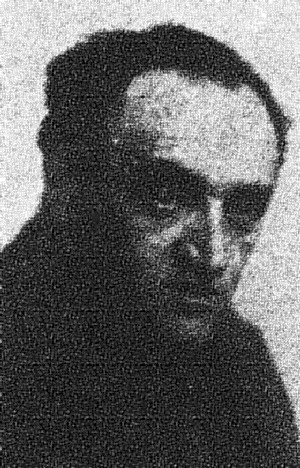One of the stars of the movie version was the author's son David Opatoshu, a very successful Broadway and motion picture actor. This is sometimes shown on the Turner Classic Channel.
Ruth Wisse in her introduction to Romance of a Horsethief described it as one of the first attempts to portray a criminal underworld in Yiddish literature. The central character of the story is a horsethief. It can be seen as a corrective reaction to the perhaps overly romantic works of Sholem Aleichem and others who depict the world of Fiddler on the Roof.
One of the standard features of literatute devoted to criminals is an attempt to portray people and society in a very realistic fashion. Some equate realisism with literature that stresses only the negative aspects of human nature but Opatoshu avoids that. His villain has been a professional horsethief all his adult life. He steals horses in Poland and takes them to Germany and vice-versa. There are two thieves in this story. Shloyme is in many ways a decent man. He is a devout Jew, a good father who wants to find decent spouses for his children. Zanvl, a much younger man, says a thief has no need for prayers or the rituals of the temple. He is single and he attracts women drawn to the excitement of a "bad boy". He has a lot of raw energy. He and Rachael fall in love but Rachael cannot accept the life of the wife of a professional criminal and ends up marrying a Rabbi, as her father wants.
The real villain of the story is a middeman, a former thief now considered a respectable businessman, who brokers the stolen horses.
There is a lot of action and excitement in the story. The characters are not perfect. The village is controlled by a Cossack chief in exhile from his homeland. He tolerates the widespread horse thiefery until his own prize horses are stolen. I am glad to have read The Romance of the Horse Thief and hope to see the movie one day.
Joseph Opatoshu
(Yosef Opatovski)
 |
O. was born on 1 January 1887 in Mlawa, Plotsk Gubernia, Poland. His father was a lumber merchant (the family lead yikhusfor the [tusfut] holiday, a Jew, a scholar, one of the first meschilimin Poland, he wrote songs in Hebrew. From age ten to twelve he attended the trade folkshul in Mlawa, learning with his father. At age fourteen he entered into a trade school in Warsaw. At the end of 1905 he went away to Paris, then went to the politechnium in Nancy, but after several months he returned to Mlawa. He began to write, and he became acquainted with Peretz.
In March 1907 he immigrated to America, where he worked for several weeks in a factory, carrying [fanander] English newspapers, and he became a Hebrew teacher, completing in 1914 his studies as a civil engineer, occupied, however for only a short time with a profession and he dedicated himself to literature.
In "Tsukunft" in 1920 he published programs for a drama "Beym toytn bet", in "Tsukunft", March 1922 he published a one-acter "In salon", and when in 1922 A. visited Poland, he collaborated with the material for a three-act drama "Heynt blut", which was staged on 25 October 1922 in the Central Theatre in Warsaw (Director: Zigmund Turkow).
In the same hear through "amateurs" there was staged in Poland a dramatization of A.'s "Roman fun a ferd-gnb".
|
In December 1928 he was in Warsaw through the society "Forbert-film" under the direction of Jonas Turkow, who produced a film from A.'s novel "Di poylishe velder" with the participation of Yiddish and well-known Polish actors. The same novel was dramatized by Jacob Vaksman and staged in 1928 in Lublin.
There are five novellas in the collection from which this comes. Here is the publisher's (Wayne State University Press) description.
The five short novellas which comprise this anthology were written between 1890 and World War I. All share a common setting—the Eastern European Jewish town or shtetl, and all deal in different ways with a single topic—the Jewish confrontation with modernity.
The authors of these novellas are among the greatest masters of Yiddish prose. In their work, today's reader will discover a literary tradition of considerable scope, energy, and variety and will come face to face with an exceptionally memorable cast of characters and with a human community now irrevocably lost.
In her general introduction, Professor Wisse traces the development of modern Yiddish literature in the late 19th and early 20th centuries and describes the many shifts that took place between the Yiddish writers and the world about which they wrote. She also furnishes a brief introduction for each novella, giving the historical and biographical background and offering a critical interpretation of the work.
Published by: Wayne State University Press
I think anyone with a serious interest in Eastern European literature would love this book.
Mel u
|






No comments:
Post a Comment